Carnegie Mellon Chemistry majors learn cutting-edge chemistry in a highly supportive environment with outstanding faculty and superb facilities. The department offers innovative, interdisciplinary courses and excellent opportunities to conduct research with a faculty mentor. Students can also choose from a variety of degree programs to pursue in depth interests in areas such as biochemistry, polymer science, computational chemistry, environmental science, health professions, and management.
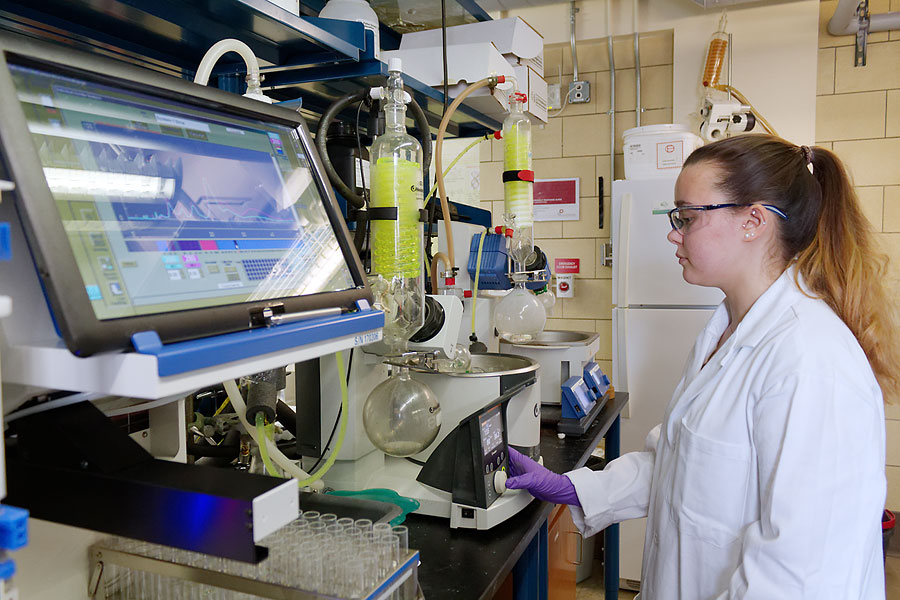
Undergraduate Research
Approximately 90% of our chemistry majors participate in undergraduate research projects.
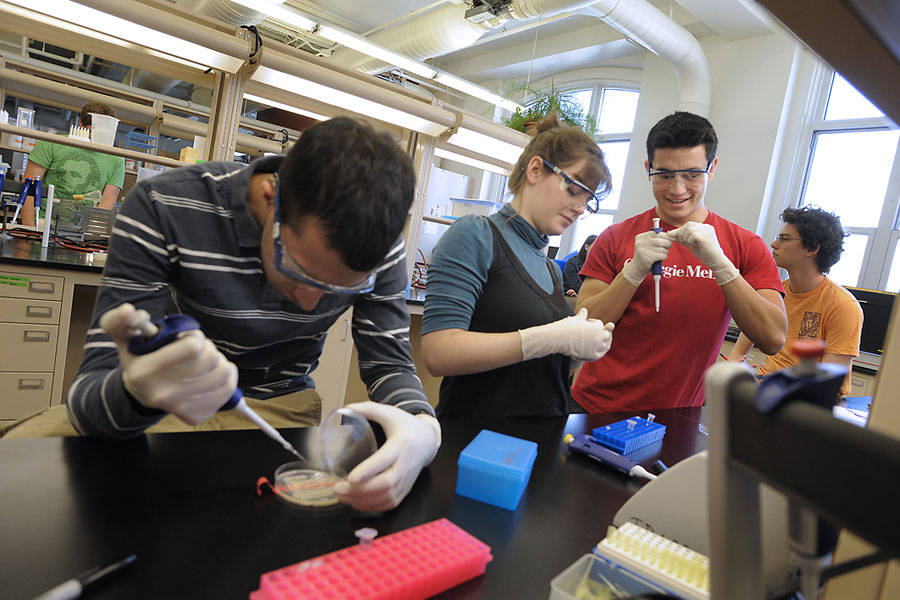
Interdisciplinary Programs
Our program is uniquely interdisciplinary. Students are able to take a variety of courses and pursue research projects in biology, biochemistry, materials chemistry, environmental science, and even business. The university supports students combining their varied interests through Science and Humanities Scholars program and a Bachelor of Science and Arts degree.
Pictured: First-year students in the Phage Hunters class, where they use sophisticated research tools to unearth a virus's secrets
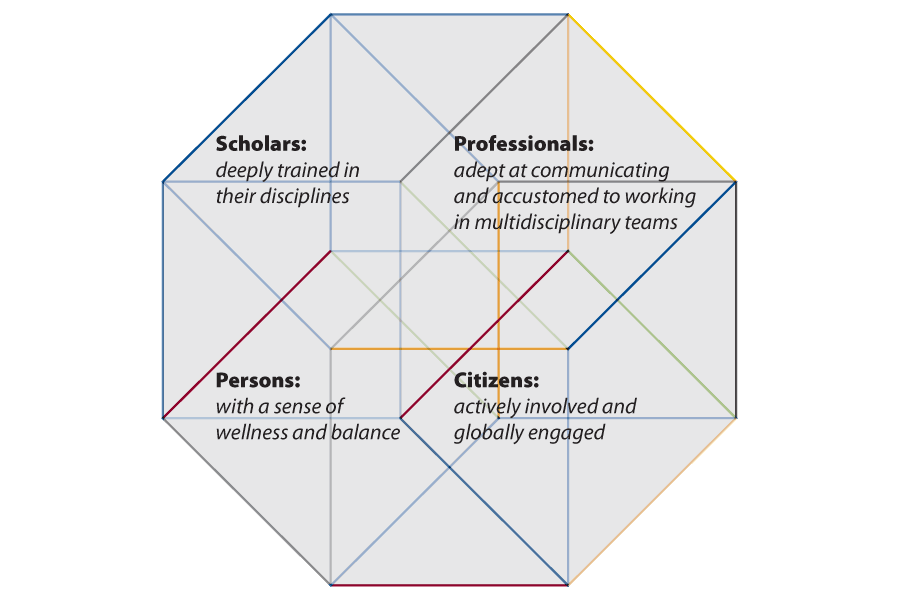
A Core Education for 21st-Century Scientists
A Mellon College of Science education prepares our graduates to thrive in the 21st-century scientific and social world they will face and shape. Our innovative Core Education fosters student growth in four dimensions—scholar, professional, citizen, and person—to give students a multi-dimensional undergraduate experience.
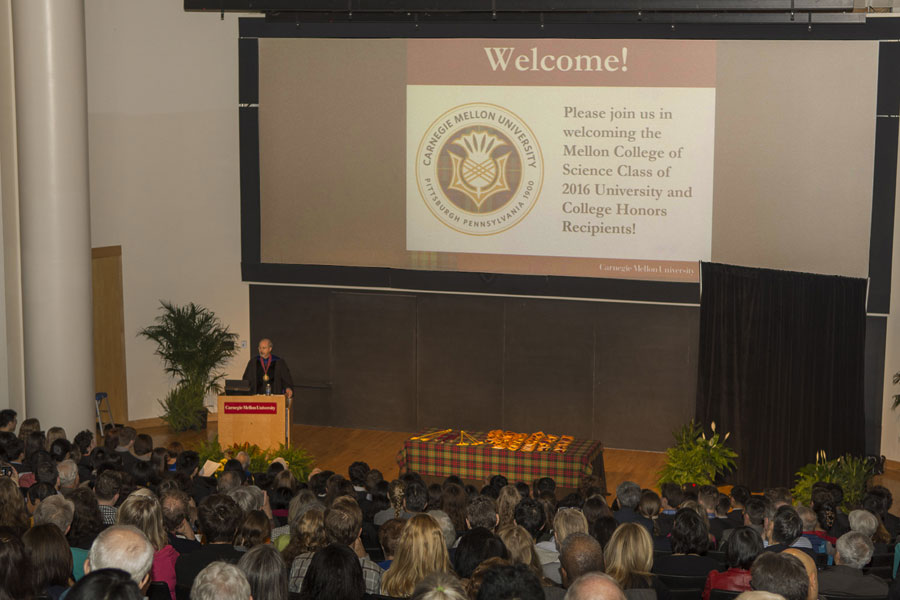
Honors Program
The Honors B.S./M.S. Program in Chemistry enables students to earn both a B.S. and an M.S. in 4 years.
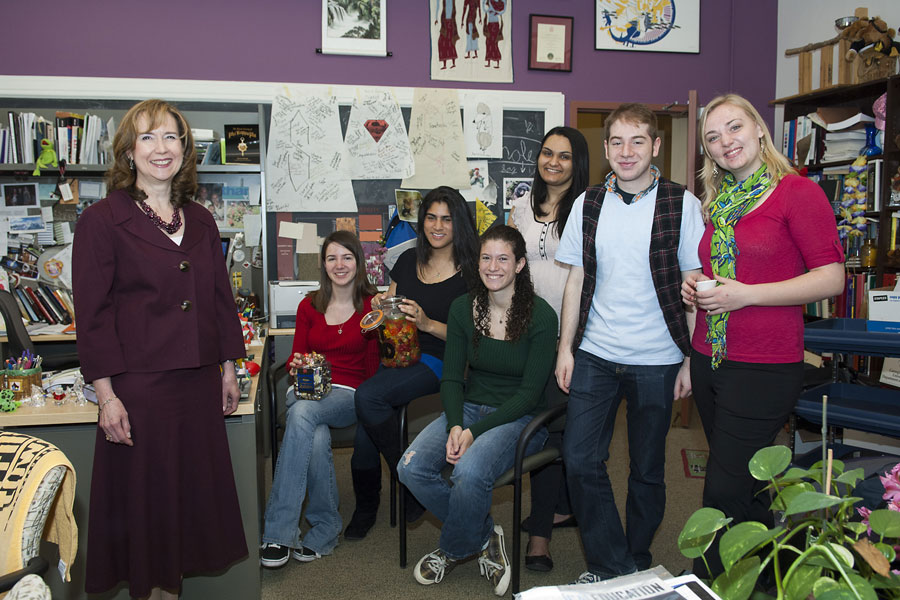
Advising
Chemistry majors receive considerable personal attention from faculty advisors throughout their Carnegie Mellon education to help in selecting courses, finding research or internship opportunities, and deciding on their next educational or career choices.
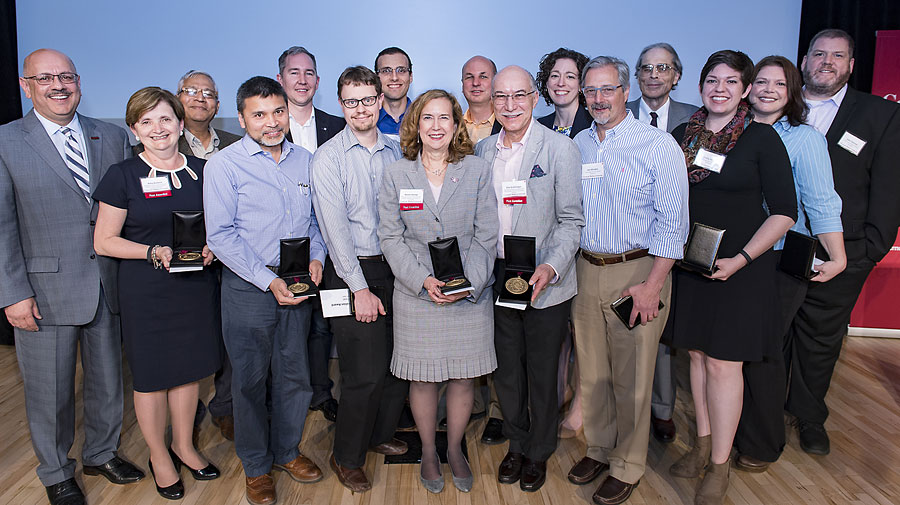
Teaching Excellence
The Chemistry faculty is dedicated to teaching excellence. Several Chemistry faculty have received national, university and college awards, developed innovative courses, and used technology to enhance their teaching.
Pictured: MCS Faculty and Staff Win Teaching Innovation Awards at the 2017 Celebration of Education, including chemistry professors Karen Stump and Dave Yaron
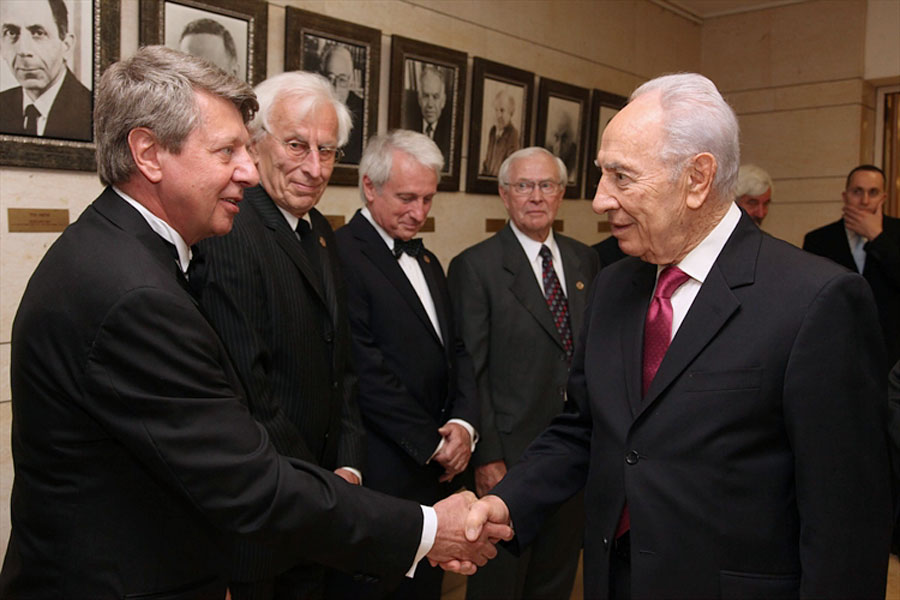
Internationally Recognized Faculty
The Carnegie Mellon faculty is internationally recognized for research accomplishments in many areas including studies of biomolecules, green and environmental chemistry, and polymer science.
Pictured: Krzysztof Matyjaszewski (left) with Shimon Peres, the President of the State of Israel, at the 2011 Wolf Prize ceremony. (photo courtesy of the Wolf Foundation)
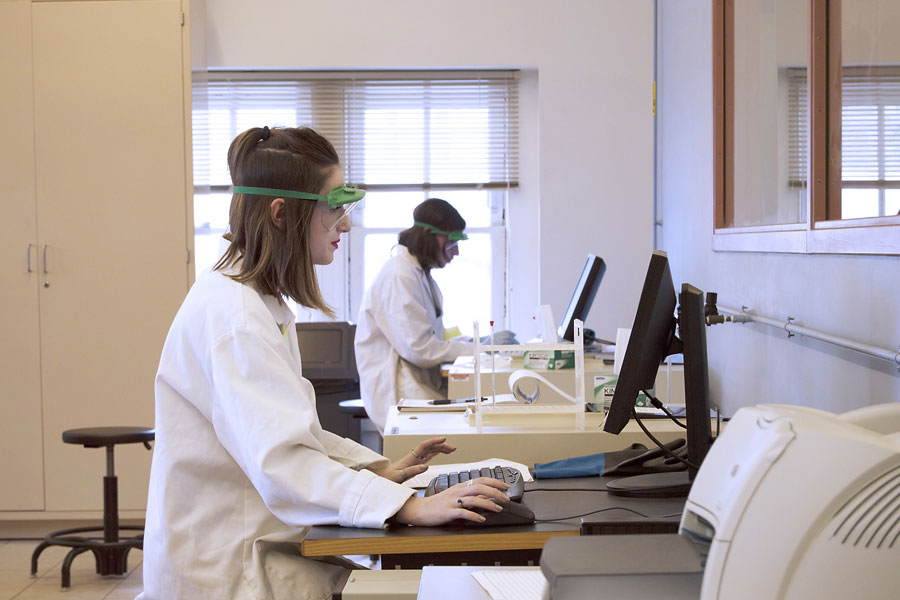
Laboratory Experiences
Innovative laboratory experiences that prepare students to fully engage in research activities are offered in state-of-the-art facilities in Doherty Hall. The sequence of four required 12-unit laboratory courses offers a rich diversity of experiences in modern instrumental methods of analysis and synthesis explored through project-oriented activities that build excellent problem solving skills.

Student Life
The annual MCS Ball (pictured here) is one of many social and professional opportunities for chemistry students to participate in department, college, and university activities.
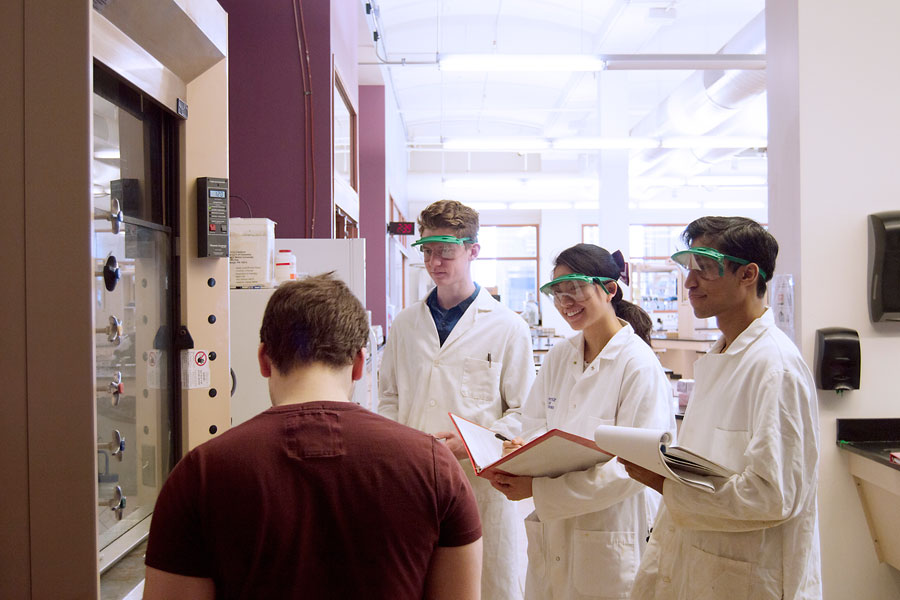
Innovative Chemistry Curriculum Initiatives
The curriculum is flexible enough that many students choose to complete double majors, minors and various degree options involving a concentration of 4 to 8 related courses.
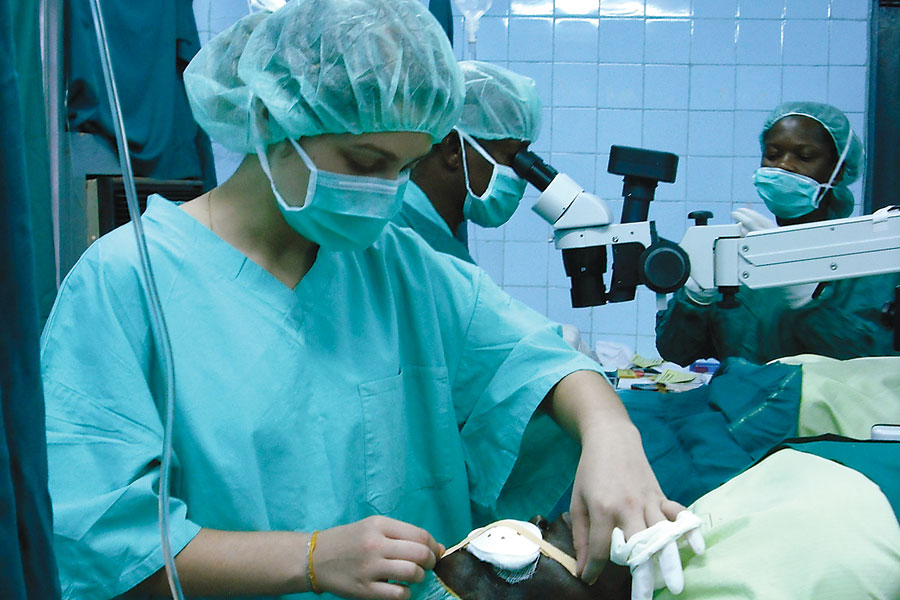
Health Professions Program
Students interested in pursuing a graduate degree in the health professions have an experienced guide to turn to for help. The director of the Health Professions Program helps students explore their interests, meet graduate school admission requirements and find opportunities for engaging with health professionals and patients.
Pictured: Ashley Kilp (CMU 2010) helps bandage a patient's eye after cataract surgery while volunteering with Unite for Sight in Ghana.
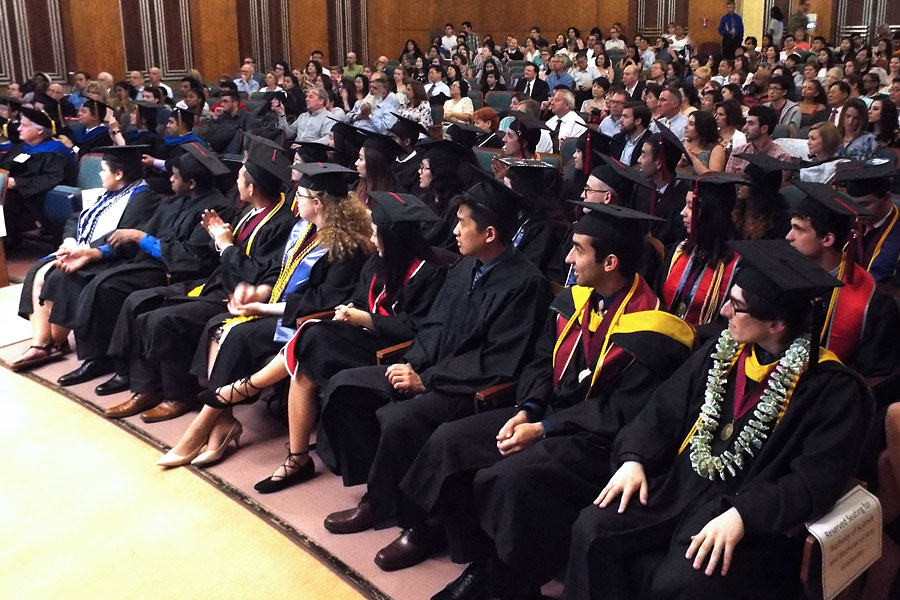
Post-Graduation Options
Carnegie Mellon chemistry majors go on to excellent positions in companies like Proctor & Gamble and Reckitt Benckiser and to top Ph.D. programs such as at Cal Tech, MIT, UC Berkeley, Northwestern, Harvard and Stanford.
Alumni on "Why Study Chemistry at Carnegie Mellon?"
Alyssa Rice (S'2012)
Alyssa Rice (S'2012) & Adam Rice (S'2011)
Danielle Schlesinger (S'2015)
Daniel Nelson (S'2014)
Stephanie Kane (S'2012)
Stephanie Kane is currently an associate scientist at Covestro.
Stacey Chin (S'2013)
Stacey Chin is currently a Ph.D. candidate in chemistry at Northwestern University. She recently accepted a postion at Elsevier as an editor for a new journal in materials.